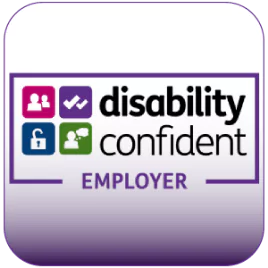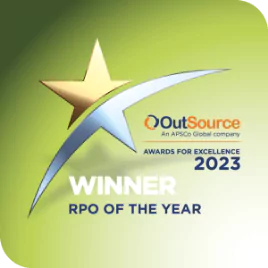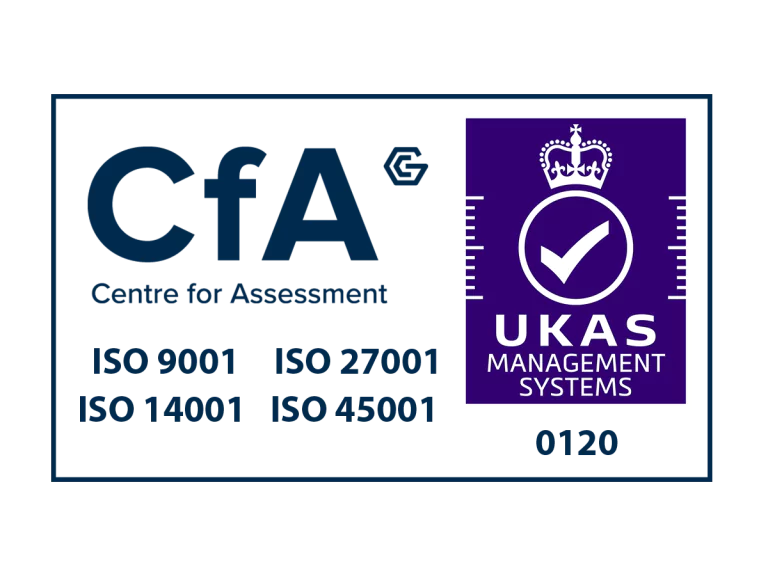If you’re looking for flexible recruitment support that fits your organisation's needs, Omni’s On-Demand RPO solution is for you.
Effective Onboarding for Hybrid Workers




According to recent research by Microsoft and YouGov, more than half (51%) of UK workers who currently choose hybrid working would consider leaving their company if this option was removed.
Splitting their time between home and the office has become a must for many employees, with 59% of HR decision-makers surveyed agreeing that hybrid working had a positive effect on the mental wellbeing of their workforce.
It’s improved productivity too. A 2021 survey by PwC revealed that remote and hybrid working provided a productivity boost in most workplaces, with 57% of respondents saying their organisation performed better against workforce performance and productivity targets over the past 12 months.
Despite hybrid working delivering mutual benefits for both employees and employers, it is not without its challenges. The Microsoft and YouGov study stated that over a third (36%) of UK workers who started a new job since the start of the pandemic experienced their entire onboarding process without ever setting foot in the workplace. As a result, these workers struggled in several areas, including:
A key challenge for employers lies in conducting effective remote onboarding processes. More than a third (36%) of HR decision-makers felt remote onboarding made it hard to provide effective, role-specific training for new starters, with 35% expressing concerns about ensuring employees have easy access to the information they need to get off on the right foot. Furthermore, 28% said they are worried about upholding their organisation’s culture and reputation through remote onboarding.
Providing a supportive and structured entrance to employment for new hybrid employees has never been more valuable. Not only does it ensure the new hire is engaged from the outset, but it helps employers retain those vital skills that are becoming more challenging to recruit. Here, we look at how employers can effectively welcome new hybrid employees, so they feel supported and valued.
The remote onboarding process should start as soon as the job offer has been accepted. It’s never too early to begin welcoming and setting professional standards of what they can expect of the employer and what the employer expects of them.
Depending on the organisation’s practice for hybrid working, this is the ideal time to find out about the new employee’s working preferences. How many days do they want to work from home versus on-site? Do they have care responsibilities that require working hours to be flexible? Such information helps employers build out a tailored onboarding plan, particularly when it comes to scheduling training and employee meetings. Additionally, by asking new hires about their preferences, employers reinforce that the organisation values autonomy and work-life balance.
Developing and implementing a dedicated hybrid working policy document / guidelines that outlines how employees will be supported in their role goes a long way in setting expectations and providing reassurance.
In this, employers should include information on the format of team meetings and how often they will take place. There’s also the opportunity to establish ‘rules’ around hybrid working, such as calls to colleagues rather than emails or messages and reinforcing the importance of responding quickly on messaging platforms, especially if people need help or have a question.
It’s important that employees feel like their contributions are valued from the outset, so use the guidelines to reinforce that regular and dedicated team meetings will take place in which achievements are celebrated. Additionally, theey should detail that formal one-on-one meetings will be conducted that allow new hires to raise any concerns or ask for additional support.
No matter the level of the employee, assigning mentors can help new hires build connections and cultivate relationships with others in the workplace, that are potentially outside their immediate team.
Mentors can help employees decipher company values and culture and ultimately understand how they fit in with their team and wider business, which is particularly vital for remote and hybrid workers. They can also help employees get up to speed with their job and responsibilities quicker and learn new skills so they can reach their potential within the organisation. Once rapport is built with a mentor, employees should also feel comfortable raising any concerns or asking for extra help. And when face-face meetings do take place, they are another person the new hire will be familiar with, which will help with wider networking within the business.
Regular temperature checks for new employees can help organisations understand what they are getting right and where improvements should be made. Employers should consider establishing a dedicated team that’s committed to the hybrid working strategy and its development. This team should take responsibility for conducting employee surveys and taking action on the feedback provided to improve practices.
Such action will reinforce to employees that the organisation is committed to making hybrid working a permanent fixture and a workplace methodology that aims to bring out the best in people.
Through a combination of research, consultancy and best practice know-how, along with our partnership with the CIPD to develop the annual Resourcing and Talent Planning Survey, Omni has created the Resourcing Effectiveness Assessment (REA).
The REA helps organisations gain valuable insights into where they are now and identify the necessary action required to attract and retain the talent they need now and in the future. The ultimate aim is to drive the improvements that ensure a resourcing practice is directly aligned to organisational success.
To learn more about how Omni’s REA can support your organisation, get in touch with one of our consultants today. Alternatively, complete our mini REA to receive a free report that identifies your strengths and topline areas for development. Click here to start yours now.

RPO, or Recruitment Process Outsourcing, is a strategic approach to talent acquisition where organisations outsource some or all of their recruitment processes to an external provider.
In traditional hiring, organisations typically manage recruitment processes in-house, from sourcing candidates to onboarding. This often requires significant time, resources, and expertise from internal HR teams or hiring managers. However, traditional hiring methods can sometimes struggle to keep pace with changing talent demands, especially in industries facing skill shortages or rapid growth.
RPO offers a holistic and strategic approach to talent acquisition. RPO providers like Omni act as an extension of an organisations brand, assuming responsibility for recruitment activities such as candidate attraction, sourcing, screening, assessment, and even onboarding. By outsourcing these functions to specialised experts, organisations can benefit from industry knowledge, resources, and technology to give access to the best talent at pace.
One of the key differences between RPO and traditional hiring lies in the level of specialisation and scalability offered by recruitment RPO providers. RPO partners often have dedicated teams of recruiters who specialise in specific industries or skill sets, allowing them to access niche talent pools and identify high-quality candidates more efficiently. Additionally, RPO solutions are highly scalable, meaning they can quickly adapt to fluctuating hiring needs, whether it’s scaling up recruitment efforts during peak periods or adjusting to changing market conditions.
Recruitment Process Outsourcing (RPO) can significantly enhance your Talent Acquisition strategy by providing specialised expertise, scalability, and strategic partnership. Here’s how:
Specialised Expertise: RPO providers have dedicated teams of recruiters who specialise in various industries, roles, and skill sets. These experts possess in-depth knowledge of the labour market, industry trends, and sourcing techniques, allowing them to identify and attract high-quality candidates efficiently. By leveraging their specialised expertise, RPO partners, like Omni, can access niche talent pools and ensure high-quality people for your organisation.
Scalability: One of the key advantages of recruitment RPO is its scalability. RPO providers can quickly scale recruitment efforts up or down based on your organisation’s hiring needs. Whether you’re experiencing rapid growth, seasonal fluctuations, or project-based hiring spikes, RPO can adapt to accommodate your changing requirements. This flexibility ensures that you have the right resources in place to meet demand without overburdening your internal HR team or sacrificing recruitment quality.
Cost-Effectiveness: RPO recruitment can offer cost savings when compared to traditional hiring methods. While there may be an initial investment in outsourcing recruitment to an RPO partner, the long-term benefits often outweigh the costs. RPO can help reduce time-to-fill, cost-per-hire, and turnover rates, resulting in overall cost savings for your organisation.
Strategic Partnership: RPO goes beyond transactional recruiting by forging a strategic partnership between the RPO partner, like Omni, and your organisation. At Omni, we become an extension of your employer brand and we work closely to understand business objectives, culture, and talent requirements. This collaborative approach allows RPOs to tailor recruitment strategies that align with your organisation’s goals. By working as an extension of your HR team, RPO providers can provide valuable insights, leading practices, and innovative solutions to help achieve talent acquisition objectives.
Recruitment Process Outsourcing (RPO) is a strategic approach to talent acquisition where organisations outsource some or all of their recruitment processes to an external provider, like Omni. The partner is known as the RPO provider and assumes responsibility for various aspects of the recruitment process, including candidate attraction, candidate sourcing, screening, assessments, interview coordination and onboarding.
Recruitment RPO is about leveraging specialised expertise, technology, and resources to streamline the recruitment process and improve hiring outcomes. Rather than relying solely on internal HR teams or traditional recruitment agencies, organisations partner with RPO providers to access a broader range of talent to enhance efficiency and drive better results.
The specific services offered by RPO providers can vary depending on the needs and preferences of the organisation. That’s the beauty of RPO. Some organisations may opt for end-to-end RPO, where the RPO provider manages the entire recruitment process from start to finish. Others may choose to outsource specific elements of the recruitment process, such as candidate sourcing or interview scheduling, while retaining other aspects.
There are several key advantages:
Access to Specialised Expertise: RPO providers have dedicated teams of recruiters who specialise in various industries, roles, and skill sets. This expertise allows them to identify and attract high-calibre talent more efficiently than internal HR teams or traditional recruitment agencies.
Scalability: RPO recruitment solutions are highly scalable, meaning they can quickly adapt to fluctuating hiring needs. Whether your organisation is experiencing rapid growth, seasonal fluctuations, or project-based hiring spikes, RPO can flexibly adjust to accommodate your changing requirements.
Cost Savings: RPO can offer cost savings compared to traditional hiring methods. By outsourcing recruitment processes to an external provider, organisations can reduce time-to-fill, cost-per-hire, and turnover rates, resulting in overall cost savings for the business.
Strategic Partnership: RPO recruitment goes beyond transactional recruiting by fostering a strategic partnership between the RPO provider and the organisation. At Omni, we work closely with our organisations to understand their organisation’s objectives, culture, and talent requirements, allowing us to tailor recruitment strategies that align with the organisation’s goals and values.






